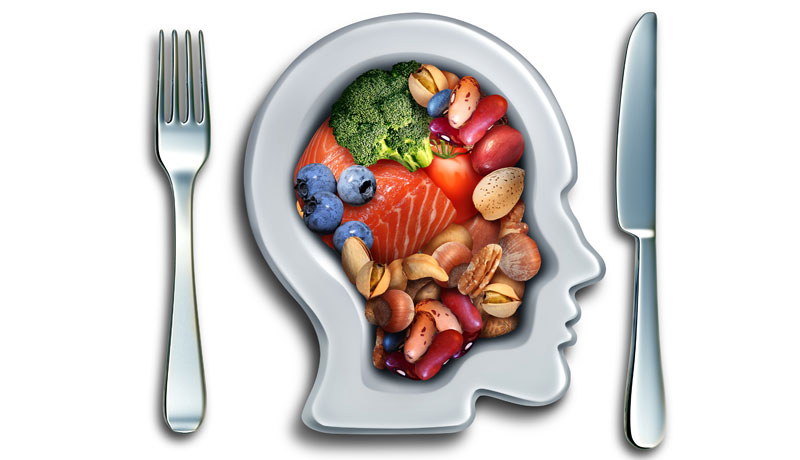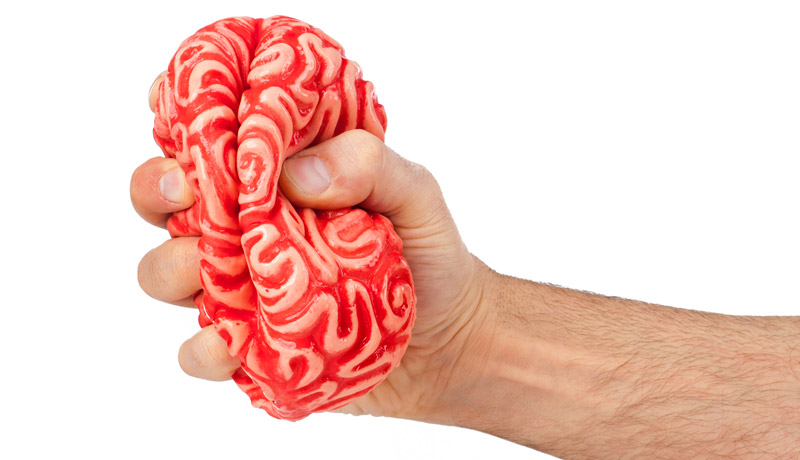Here’s food for thought: The average adult human brain has about 100 billion cells.
Scientists used to think that past childhood, the brain stopped developing. Once all of its connections formed, they were set for life, and then, all these cells would simply begin their inexorable decline.
Now, we know different: Neuroplasticity (the brain’s ability to create and reorganize synaptic connections) continues throughout life. And these days, the scientific community actively researches the myriad ways this happens and how we can boost our brainpower.
How To Increase Your Brainpower
Although we’ve long known about the areas that “feed the brain” (e.g., good nutrition, learning new skills), here are some recent findings on boosting brainpower:
1. Take advantage of blueberry season
A diet rich in plant-based foods (fruits and vegetables) helps brain cognition and staves off dementia. (Conversely, we know that too much salt, sugar and trans fat lead to inflammation and brain shrinkage.) This study is among the evidence linking blueberries to brainpower as we age. Blueberries contain flavonoids (plant pigments) which are known to generate a variety of health benefits, including the potential to protect brain neurons.
2. Exercise for body and brain
Exercise is good for our hearts, but it has also been shown to have a strong positive impact on our brains. Exercise can create new brain cells as well as lead to improvement in general brain performance. One scientific study in particular focused on brain-derived neurotrophic factor (BDNF), finding a 32 percent increase in BDNF levels in exercisers. BDNF is a protein within nerve cells that in essence keeps those cells optimally functioning, and contributes to their growth as well as to the growth of new neurons. It appears that vigorous workouts can increase BDNF levels.
3. Work right to think right
Environmental (“green”) office spaces have always maintained a good reputation. Now, it turns out that in addition to better productivity and fewer sick days, they also have an impact on better brainpower. In 2015, a study conducted by Harvard T.H. Chan School of Public Health showed that cognitive functioning is substantially improved for those who work in “green” offices. Much of this is due to better air circulation and ventilation, which can result in lower levels of volatile organic compounds (VOC) and carbon dioxide in the air. Check with your employer or an environmental expert on how you might facilitate a “green” office space. In the meantime, consider indoor plants. Simply adding a few of these can reduce indoor pollution and help filter the air.
4. Lead a musical life
Listening to music, singing or playing an instrument “exercises” our brains. This is in part due to the release of the feel-good chemical dopamine. A 2015 study found that classical music, specifically Mozart, can be linked to the brainwave activity which impacts attention and cognitive function. It turns out music is a coping mechanism for pain and depression (which involve brain chemicals). In addition, one researcher postulates that the strong emotions evoked by music can enhance brain memory.
5. Clear the house, clear the mind
Princeton Neuroscience Institute (PNI) researchers published an article in the Journal of Neuroscience which detailed their discovery of an interesting phenomenon: Multiple stimuli present in the visual field at the same time compete within the brain, resulting in lowered performance. This basically means that clutter causes distraction, and that distraction impedes the brain from focus and information processing. The findings of their study imply that a clean environment translates to a clear mind.
6. Meditate for peace (and strength) of mind
Multiple sources have provided evidence on the connection between mediation and positive brain changes. These include a study that ties an increase in gray matter density to meditation. Even 20 to 30 minutes a day of meditation/mindfulness can result in the following definitive brain changes:
- An increase in the gray matter of the anterior cingulate cortex (located behind the brain’s frontal lobe)
- An increase in gray matter density in the prefrontal cortex (regulates problem-solving, emotion and planning)
- An increase in the cortical thickness of the hippocampus (responsible for learning, memory, and susceptibility to stress and related disorders)
- A decrease in the size of the amygdala, the source of fearful and anxious emotions (known as the brain’s “fight or flight” mechanism).
So, with this new knowledge, let’s go back to that original statistic: The average adult human brain has about 100 billion cells. Just think about how we can nurture all those cells and what would happen if we did…
Originally posted on the Huffington Post, updated October 2021.

ANA is a team of expert neurosurgeons and medical professionals, who combine their decades of knowledge to provide information, events, and articles on a range of neurological conditions.



